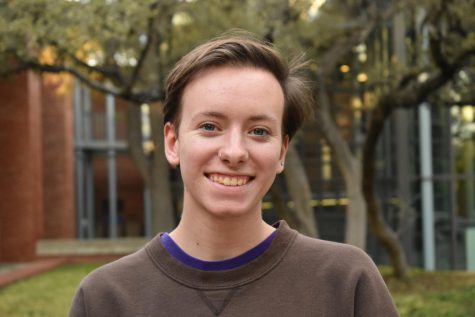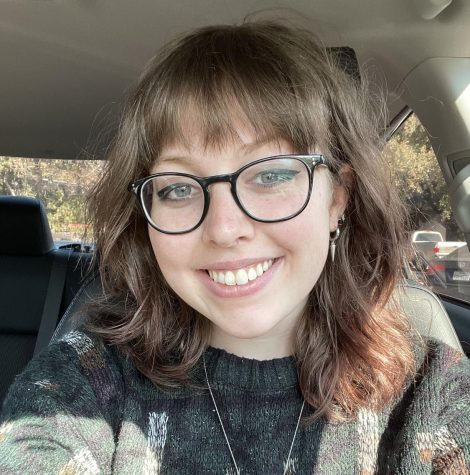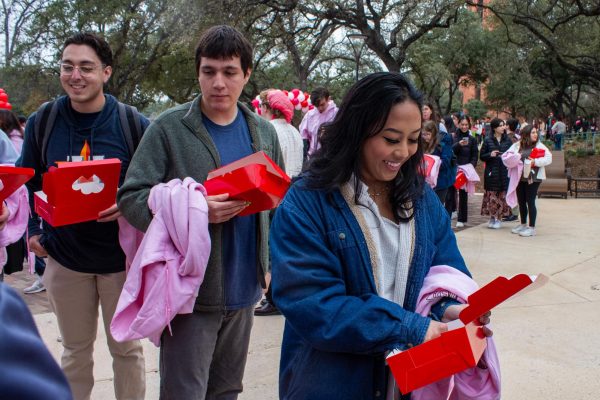Feasibility study for self-operating dining model approved
The study comes after Tigers Against Aramark (TAA) voiced their concerns about Aramark’s ties to the prison-industrial complex
First-years John Hawes and Sean Mitchell eating dinner at Mabee Dining hall, an Aramark dining service.
A year ago, junior Rachel Poovathoor and sophomore Brandon Niday did not know if the Tigers Against Aramark (TAA) coalition they created would still be active today. They did not know that, thanks to their work, the Trinity community would be more aware of the ties Aramark, Trinity’s dining service provider, has to the prison industrial complex. And they certainly did not know that they would have the opportunity to meet with Aramark representatives at an October Student Government Association (SGA) meeting.
“At that meeting we basically exposed Aramark for what they truly are and it just got really real from that because we started talks with the administration about what we can actually do to replace Aramark,” said Niday. “Before the meeting it was like, ‘we have to prove ourselves,’ but after the meeting, the admin was with us. It was a change in tone.”
This change in tone has led to the most recent success of the collaboration between TAA, SGA and staff including David Tuttle, Dean of Students, Tess Coody-Anders, Vice President for Strategic Communications and Marketing, Courtney Balderas, Director for Student Diversity and Inclusion and Bruce Bravo, Senior Director of Conferences and Auxiliary Services.
At a meeting with the Executive Leadership Team on April 6, Danny Anderson, Trinity University president, approved a feasibility study for a self-operating local dining model. This model would mean Trinity would no longer have a vendor relationship for dining and would instead sustain its own dining model with locally sourced and campus-made food.
“In short, the feasibility study is basically a process by which independent third-party experts help determine the costs, both human and capital, to building a self-op program and what the potential return on the program could be,” said Coody-Anders.
This feasibility study is planned for the fall. Niday said TAA will resurface to inform the community about the decision and their response after the month-long study concludes.
While Niday said a self-operating model would bring student satisfaction because of Trinity’s increased flexibility when tweaking dining services, this plan is fueled by grievances TAA publicized specifically about Aramark as a corporation. In their initial report released in September of 2020, they wrote that because Aramark contracts with prisons that uphold systemic racism, Trinity is investing in this oppression by keeping Aramark as its dining services provider.
“There’s no question that the contract with Aramark is questionable and is tied to the prison-industrial complex,” Poovathoor said. “We did so much research and so much organizing that we got Trinity to a place to accept that and no longer are we making the argument necessarily specifically against Aramark. But from this point forward, especially after that meeting, what we’re doing is working towards a solution that doesn’t include Aramark.”
According to Coody-Anders, Trinity has an obligation as a university whose core values include inclusion and diversity to reevaluate its relationship with a corporation with allegations of racism.
“As we look at diversity, equity and inclusion as a critical way of being on our campus, this process and thinking about these kinds of issues is giving us a way of how to align all of our strategies at Trinity to DEI, including our vendor strategies.” Coody-Anders said.
Part of the transition to a self-operating model would include integrating any Aramark employees who work on Trinity’s campus into the new model if they would want to stay.
“We definitely don’t want anyone to be displaced because of this,” Niday said. “With that being said, the self-operating model is a huge human capital shift. You have to move lots of people, most of whom are contracted workers, which makes it even more complicated, so that’s going to be our biggest point of contention.”
If the feasibility study says that Trinity is unable to transition to a self-operating model, Poovathoor and Niday said they are not sure how TAA’s role will change. However, they are sure this process will not have been for naught.
“I think the best thing that happened in our [Executive Leadership Team] meeting was that most if not all the administration had already recognized that Aramark is a morally complicated if not outright distasteful corporation,” Niday said. “It has dealings with the prison system which is inherently racist, and I feel like the admin recognized that which is a big leap forward from where we were a year ago.”
Poovathoor said that the collaboration between TAA, SGA and staff who volunteered to help with this issue will serve as a model for organizing in the future.
“Us organizing is a testament to our power as a collective, as a movement,” Poovathoor said. “I think that the people at Trinity who are kind of watching us from the outside or the students coming up who are seeing what we’re accomplishing and the rooms we’re able to get in by being strategic, by being organized and by being really, really well-informed, I hope that it’s inspiring and I hope that it encourages students to stand up and use their voice.”

I am a senior French and Earth Systems Science double major from St. Louis, MO. When I'm not wearing my EIC hat, I am also a Chapel | Spiritual Life Fellow,...

My name is Claire Sammons and I am an Anthropology and Communications double major. I have worked for the Trinitonian since fall of 2020. I became a photographer...










